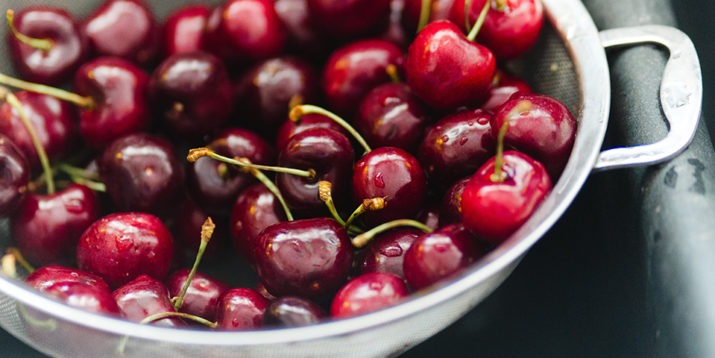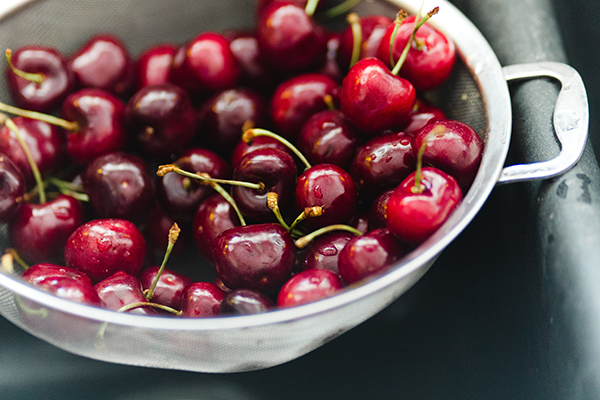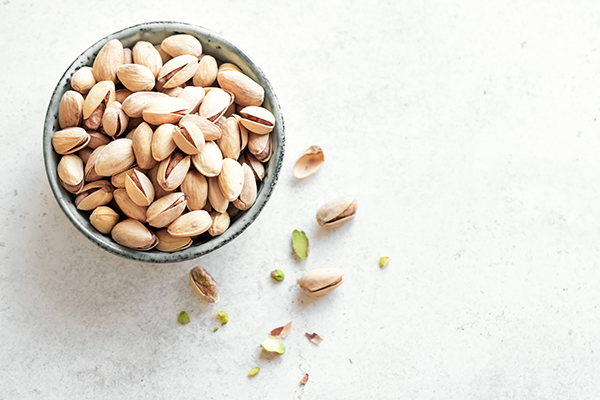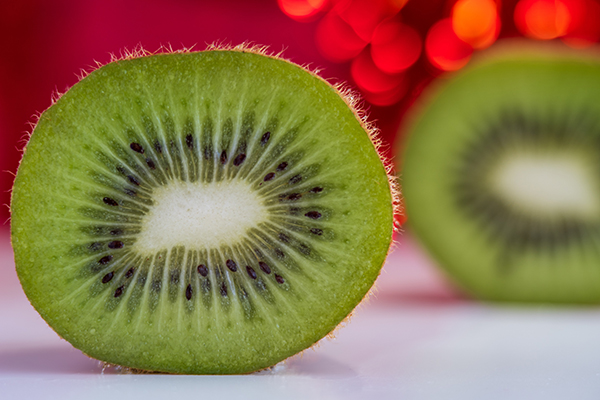7 Foods That Can Help You Sleep

A good night’s sleep readies you for the physical and mental challenges of the day ahead.
And over time, an optimal quality and quantity of sleep can also help you stay healthy and achieve and maintain a healthy weight.
So you want to do all you can to ensure you’re snoozing like a champ each night.
You might get a white noise machine, invest in blackout curtains, and avoid blue light from screens in the hour or two before bed.
But your diet can also help boost your odds of getting restorative, rejuvenating, reparative zzz’s.
Here are seven foods that help you sleep, so your body can do its crucial maintenance work each night.

1. Cherries
Tart cherry juice concentrate has been linked to an increase in melatonin that is beneficial in helping to improve sleep duration and quality.
2. Dark Leafy Greens
Dark leafy greens are loaded with magnesium, which is needed for 300 biochemical reactions in the human body — including muscle relaxation.
The jury is still out with regard to magnesium as a sleep aid.
However, a double-blind, randomized clinical trial of 46 elderly participants suggests magnesium may have a positive effect on sleep quality and self-reported insomnia symptoms.
Research also suggests individuals with physical and mental stress can benefit from magnesium.

3. Nuts
Almonds, pistachios, and walnuts not only provide magnesium, but they’re also dietary sources of melatonin, the hormone that helps to regulate your body’s sleep-wake cycle.
This makes them a favorite amongst foods that help you sleep.
4. Kiwi
Kiwifruit contains tryptophan, an essential amino acid that plays a role in the production of serotonin.
Research suggests certain compounds in kiwifruit may also have a beneficial effect on sleep patterns.
In one small study, participants who ate two kiwis before bedtime over a period of four weeks reported falling asleep faster, staying asleep longer, and better sleep quality.

5. Fatty fish
Research suggests the omega-3 fatty acids in fatty fish like salmon, albacore tuna, and mackerel may be associated with better sleep quality.
6. Milk
Drinking a glass of warm milk before bed is a traditional nighttime ritual.
But research suggests incorporating milk and other dairy products into a healthy diet — at any time of day — may help you sleep better.
Researchers analyzed 14 studies between 1972 and 2019 and concluded that “a well-balanced diet that includes milk and dairy products is effective in improving sleep quality.”
However, it’s important to note that the quality and outcomes of these studies varied widely, so further high-quality studies and meta-analysis will be needed to clarify the relationship between dairy intake and sleep quality.
7. Oysters
Oysters are one of the best dietary sources of zinc, an essential mineral that may play an important role in regulating sleep.
And in a 2017 study, participants who consumed zinc-rich oysters improved sleep onset latency (the amount of time it takes to fall asleep) and sleep efficiency.
